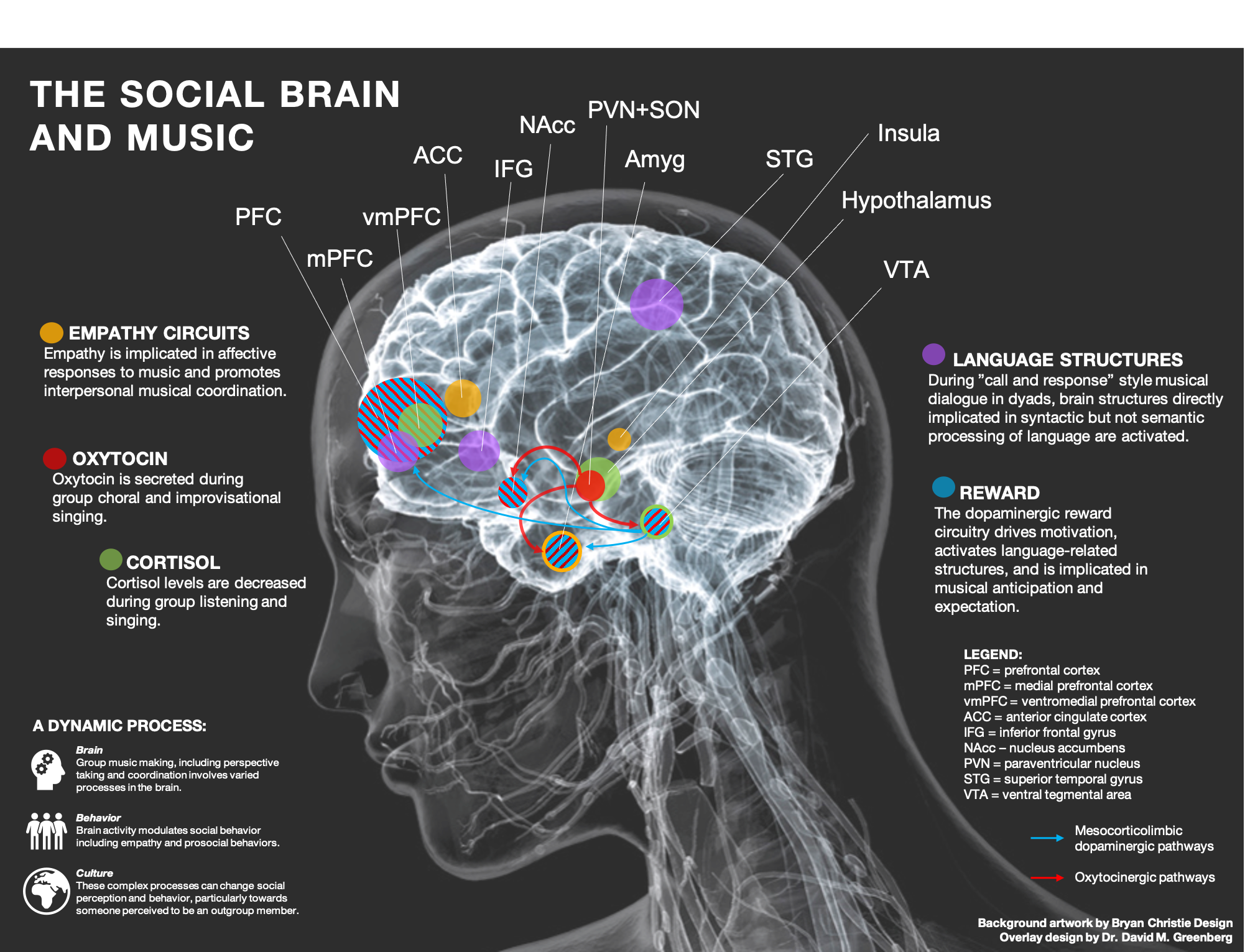Why Music? Part 1..
Why is music such a powerful, ubiquitous force? It’s a huge question that fascinates me, and is much bigger than one blog post. I’ll be digging into this question here, and want to start by highlighting recent research from the American Psychologist journal.
As our lives dramatically shifted in 2020, the world became even more disconnected. Social distancing, quaranteams, masking, and many more phrases became “normal” as we lived through a pandemic. Finding ways to cope and connect became vital.
As I read countless stories of balcony singing and streaming concerts, I felt hope. I shared music from my porch, Facebook live, and Zoom. While it wasn’t the same as being at a huge, crowded concert and singing/dancing/screaming with thousands of “strangers” (aka band family), it was a balm for my spirit. I felt less alone, and hope I shared ripples of that feeling. I read about the social aspects of music that I missed so much, and found a beautiful statement: Sound is touch at a distance. Unfortunately, I didn’t save the original source I read, but this statement struck a chord; it has stuck with me.
Nearly all of us have felt the powerful social connection that happens at a concert, or when making music with others. Thanks to a team of curious researchers, we have more insight on the WHY…
“Traditionally, the ideal setting for the social brain to thrive is during face-to-face and real-life interactions (Gordon et al., 2014). Thus, one might wonder how our herding instincts and social needs can be met with current social distancing. The solution is simple: with a tool that has been around for at least 40,000 years (Conard et al., 2009)—music.”
Here are my top 10 takeaways from this piece of research:
Empathy, affective responses, and musical coordination are interconnected in shared musical experiences.
Music boosts dopamine levels.
Singing boosts oxytocin levels.
Group music listening and group singing can decrease cortisol levels.
Musical anticipation and expectation ties into our brain’s reward system.
Thanks to these neurochemical reactions, music engagement can reduce stress and bolster the immune system.
Music boosts empathy and positive social behaviors.
Group musical experiences can shift social perception and behavior, especially toward those perceived to be outsiders.
Across the world, human song has cultural universal characteristics of form and function, pitch perception and musical emotions.
Musical interventions, such as clinical music therapy, have been shown to reduce stress, loneliness and depressive symptoms even when participants engage over Zoom/similar online platforms.
“Music seems to provide a remarkably effective means of social connection in a time of social distancing, and in some contexts, it may allow our brains to feel connected even without traditional face-to-face interactions. Given the vast literature showing the effectiveness of music intervention, we suggest that making music together should be encouraged during periods of isolation to potentially enhance mental health, increase solidarity, and meet social needs.” -Greenberg et. al
David M. Greenberg et al, The social neuroscience of music: Understanding the social brain through human song., American Psychologist (2021). DOI: 10.1037/amp0000819
